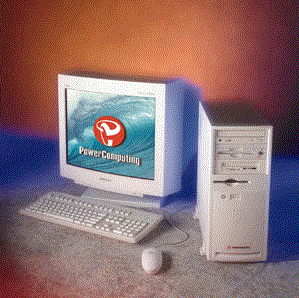Apple eliminates the top clone vendor. (Power Computing) (Company Business and Marketing)
Macworld
November 1, 1997 | Beale, Stephen
Apple Computer drove a
spike through the heart of its Mac OS-licensing program when it announced on
September 2 that it will acquire the core assets of Power Computing, the
company that built the largest Mac-clone business. Apple will exchange $100
millio n in common stock for Power Computing's Mac OS license and 200,000-name
mailing list, and also has the right to retain Power Comput- ing executives
involved in direct marketing, distribution, and engineering.
Power Computing will
continue as a vendor of Windows PCs, but as of December 31, it will no longer
sell Mac systems. Power Computing has also canceled a planned initial public stock
offering and halted construction on a new $25 million headquarters near A
ustin, Texas.
Competition No More
The acquisition eliminates
Apple's stiffest Mac systems competitor, one that claimed nearly 10 percent of
the Mac market in the second quarter of 1997, according to Dataquest. Apple
also stands to benefit from Power Computing's expertise in direct marketi ng
and build-to-order manufacturing; Apple cur- rently sells almost all of its
systems through dealers, but plans to step up its own direct-marketing efforts.
First Licensee
Power Computing was founded
in 1993 by PC-industry veteran Stephen Kahng, who anticipated that Apple would
soon be open to licensing the Mac OS. In Septem- ber 1994, Power Computing and
Radius became the first Mac OS licensees (Radius later sold its Mac sys tems
business to Umax Computer). Power Computing shipped its first Mac system in May
1995, but it wasn't until spring 1996 that the company began shipping systems
in significant volumes, eventually growing to $400 million in annual sales,
according to App le estimates. Power Comput- ing systems consistently outrated
competing Apple systems in Macworld, MacUser, and MacWeek reviews.
Power Computing's troubles
began early this year when Apple signaled that it would take a hard-line stance
with its licensees, seeking to charge con- siderably higher licensing fees and
impose other conditions. On June 18, Power Computing and Apple reached a
tentative agreement that was included in a docu- ment filed with the Securities
and Exchange Commission (see "Mac OS 8 Ships with No License Deal,"
News, October 1997). But the deal was never finalized, and after Gil Amelio's
July 9 resignation as Apple C EO, de facto chief execu- tive Steve Jobs began
an effort to eliminate or seriously curtail the licens- ing program.
Events crested at the
August Macworld Expo in Boston, where Power Computing president Joel Kocher
tried unsuccessfully to rally attendees into a mass protest of Apple's
licensing policies. In mid-August, Kocher and several other senior Power
Computing exe cutives resigned over the licensing flap; Kocher wanted to sue
Apple for breach of contract, but the company's board of direc- tors chose to
continue the negotiations that led to the acquisition.
Now that it has sold its Mac
assets to Apple, Power Computing will continue to sell Mac systems until the
end of the year. Public Relations Manager Mike Rosenfelt says the systems will
ship with Mac OS 8, and that Power Computing will likely offer discoun ts as it
clears inventory. Ironically, Power Computing's demise may mean even more price
pressure on Apple, at least in the short term.
Power Computing says it
will provide all technical support for hardware and system software until
December 31. Beginning January 1, 1998, Apple will be the primary tech-support
contact. If your problem is with the Mac OS, Apple tech support will handle it
, but if you need hardware or warranty support, Apple will transfer you to
Power Computing's tech-support facility.

Комментариев нет:
Отправить комментарий